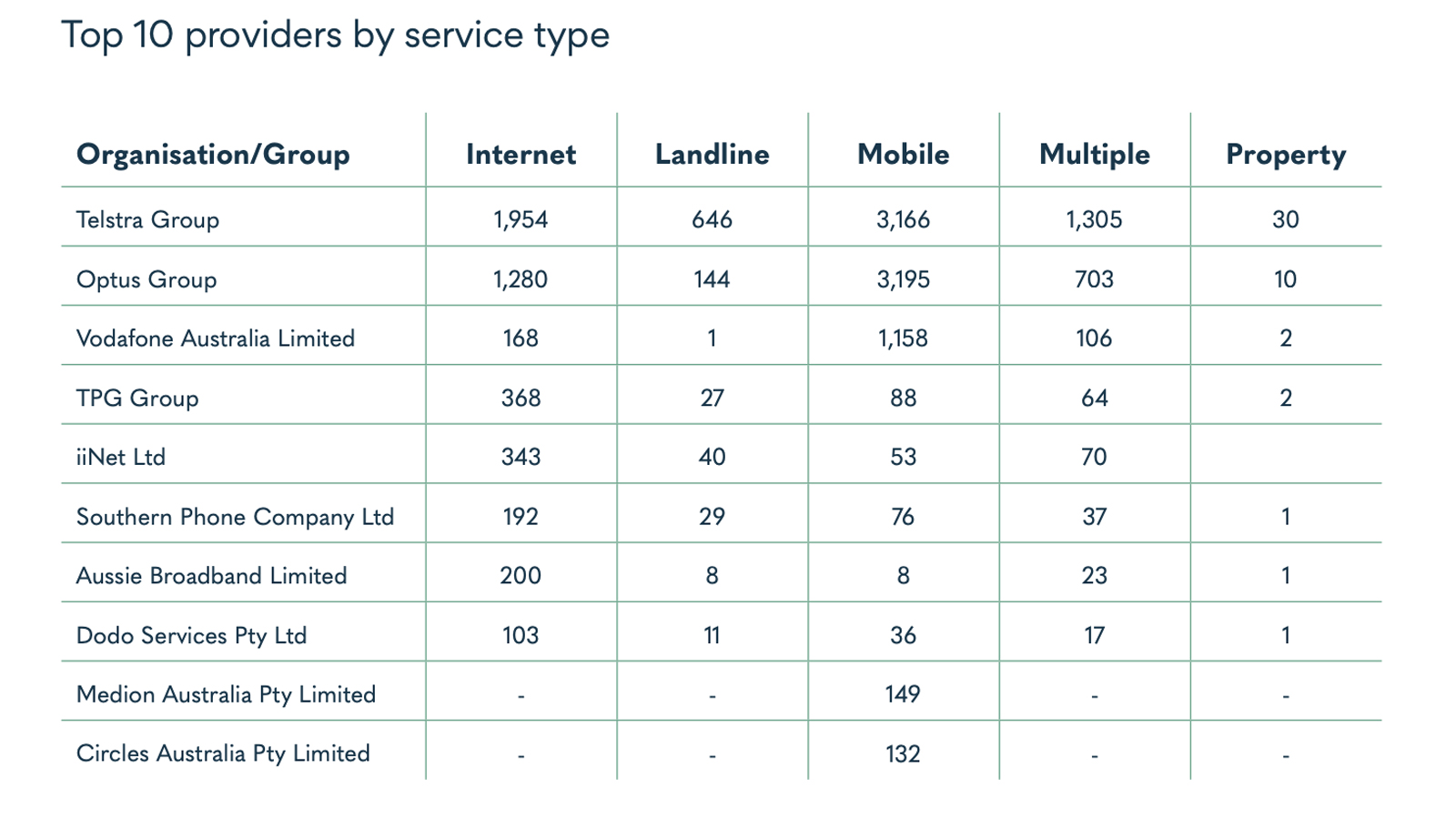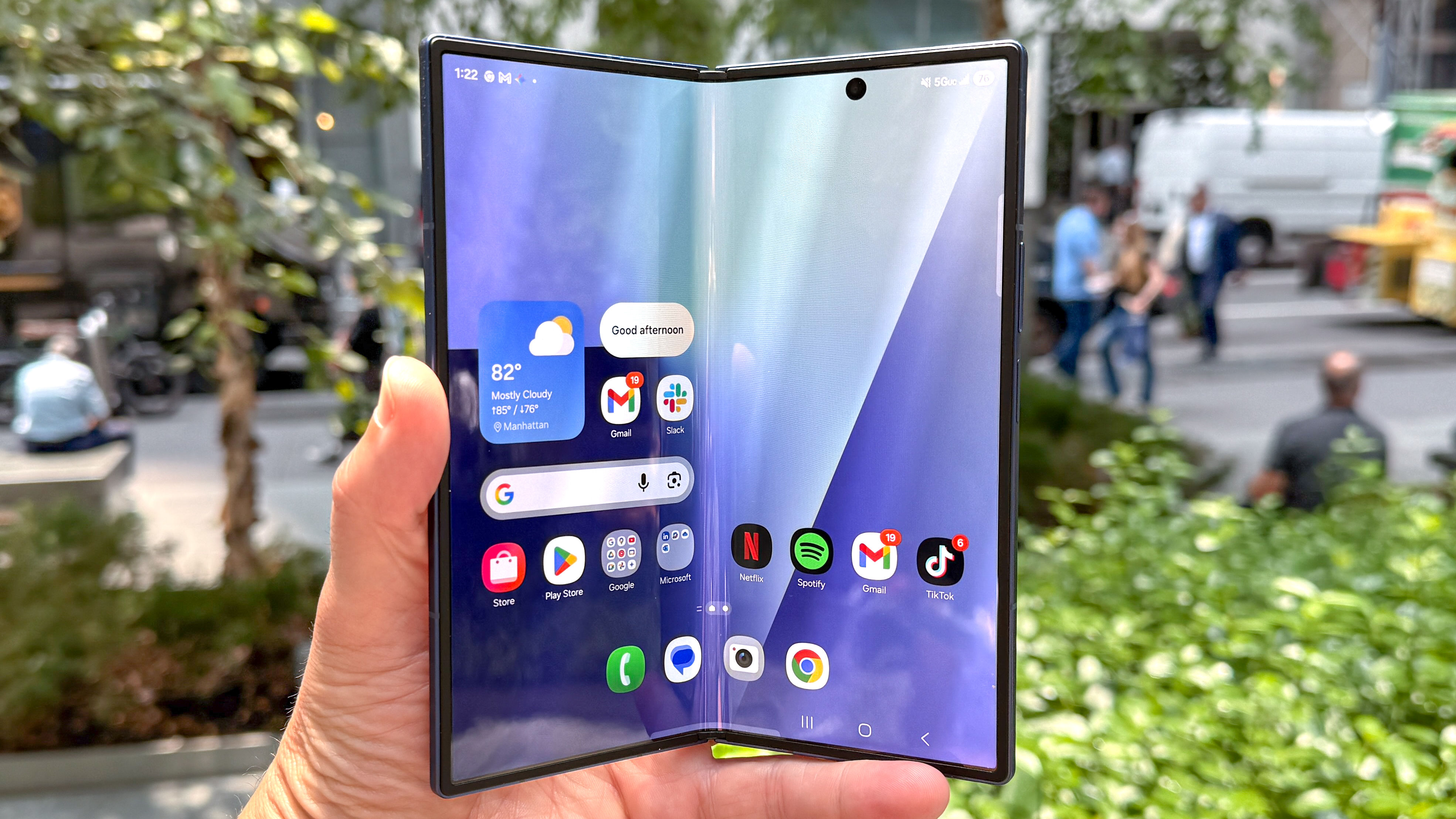Vodafone and TPG customers complain less than Optus and Telstra's, new report claims
TPG and its subsidiaries received fewer internet-related complaints than Telstra & Optus

Here at Tom’s Guide our expert editors are committed to bringing you the best news, reviews and guides to help you stay informed and ahead of the curve!
You are now subscribed
Your newsletter sign-up was successful
Want to add more newsletters?

Daily (Mon-Sun)
Tom's Guide Daily
Sign up to get the latest updates on all of your favorite content! From cutting-edge tech news and the hottest streaming buzz to unbeatable deals on the best products and in-depth reviews, we’ve got you covered.

Weekly on Thursday
Tom's AI Guide
Be AI savvy with your weekly newsletter summing up all the biggest AI news you need to know. Plus, analysis from our AI editor and tips on how to use the latest AI tools!

Weekly on Friday
Tom's iGuide
Unlock the vast world of Apple news straight to your inbox. With coverage on everything from exciting product launches to essential software updates, this is your go-to source for the latest updates on all the best Apple content.

Weekly on Monday
Tom's Streaming Guide
Our weekly newsletter is expertly crafted to immerse you in the world of streaming. Stay updated on the latest releases and our top recommendations across your favorite streaming platforms.
Join the club
Get full access to premium articles, exclusive features and a growing list of member rewards.
The Telecommunications Industry Ombudsman (TIO) has just released its latest report looking into complaints lodged against various telcos in Australia, and the TPG Group should be feeling pretty happy with itself, having received very few complaints in relation to its internet services.
The TIO report covers complaints made against internet, landline and mobile services for both residential and business customers, along with complaints made against telcos for causing property damage. A new report is released each quarter within the Australian financial year, with the latest detailing complaints made between January and March 2023.
Telstra and Optus, perhaps unsurprisingly, take the top two spots. Telstra, because it commands the largest market share of Australian internet and mobile customers and Optus, in part because of the massive data breach it experienced in September 2022.
TPG comes out on top
The TIO refers to TPG as a ‘group’ in its report, but iiNet and Vodafone are listed as separate companies with their own individual number of complaints — TPG owns Vodafone, iiNet, Internode, AAPT, Lebara and Felix.

Despite this, when combined, the TPG Group received fewer internet-related complaints compared to both Telstra and Optus. TPG also has its own network in certain locations around Australia, such as its own fibre-to-the-building (FTTB) infrastructure. Having ownership, control and the ability to directly service its own infrastructure, as opposed to relying on the NBN, could have helped it to receive fewer complaints.
Internet-related complaints against TPG, Vodafone and iiNet were 368, 168 and 343 during the quarter respectively. Combined, this equates to 879. According to the Australian Competition and Consumer Commission’s most recent wholesale market report, TPG Group (including all its brands) had a market share of 22.4%. If you divide the 879 total complaints by this 22.4% market share, you get a figure of 39 complaints per market percentage.
By contrast, Telstra returns a figure of 42 complaints per percent and Optus, 97, perhaps indicating it’s still feeling the effects of the data breach. It should be noted that all these figures are just estimates based on the most recent market share estimates made by the ACCC in December 2022. Figures as of May 2023 are likely to be different.
Get instant access to breaking news, the hottest reviews, great deals and helpful tips.
The simple route could be most effective
TPG’s internet offering is decidedly less feature-packed compared to its competitors and takes a more no-frills approach. On the contrary, Telstra and Optus both offer some form of extra inclusions such as video and/or music subscription services, and modems with 4G data backup should the fixed-line service experience a drop out.
But it’s because of TPG’s more fuss-free approach that allows it to be viewed as more of a budget telco compared to both Telstra and Optus. The average monthly cost of a TPG NBN plan is AU$100.99. The average monthly cost of an Optus NBN plan with Netflix included, is AU$131.50 and for Telstra — which bundles a number of subscription services in with its plans — the average cost is AU$121.
You can view the latest deals on TPG internet plans in the widget below, or for a wider selection of plans encompassing a range of NBN providers, including the smaller ones, be sure to check out our best NBN plans page.

Max is a digital content writer for Tom’s Guide in Australia, where he covers all things internet-related, including NBN and the emerging alternatives, along with audio and visual products such as headphones and TVs. Max started his career in his homeland of England, where he spent time working for What Hi-Fi? and Pocket-lint, before moving to Australia in 2018.
 Club Benefits
Club Benefits










